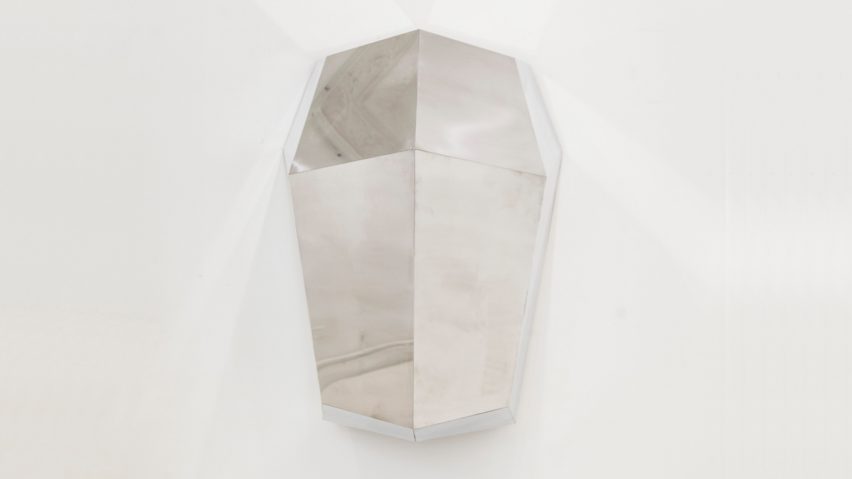Berlin-based designer Yasmine Benhadj-Djilali has proposed a new piece of office furniture to allow employees a moment of private reflection.
Named Soft Targets, the booths featured in the recent Biennale Interieur in Kortrijk as part of an exhibition of experimental German design called The Wall.
The exhibition aimed to provoke debate about typical furniture design within generic social situations – a theme that Soft Targets applies to the workplace.
Benhadj-Djilali conceived the booths as a space of silent sanctuary within the hustle and bustle of a professional office.
They join an array of products aiming to bring privacy to open-plan offices. A number of new designs in this vein were exhibited at 2016's Stockholm furniture fair, including desk screens, helmet-like baffles and wall-mounted booths for phone calls.
Benhadj-Djilali's installations are wall-mounted and can be accessed through an opening at the bottom. Shielding the inhabitant from the outside world is a shell of mirrored panelling.
"Soft Targets are a series of hollow, man-sized objects – more sculptures than furniture – that offer an immediate escape from the surroundings," she explained.
"These inhabitable sculptures provide a form of protection and offer a temporary hideaway," she continued.
The Soft Target installation is designed to merge with its environment and disperse attention away from its occupant.
"Abstract, geometrical and with a mirrored surface, they are meant to blend into their surroundings, enhancing the feeling of invisibility and safety," said Benhadj-Djilali.
The use of mirrors also creates an effect on the surrounding wall as light is reflected off the booth at various angles.
Benhadj-Djilali is the founder of Berlin-based design studio YBDD. She also regularly curates and presents exhibitions at the Benhadj & Djilali gallery, which is located within her practice's building.
Her design recalls the efforts of companies like Samsung, which recently included napping pods for employees in its new Silicon Valley offices.
Demand for such designs is supported by Gensler's 2016 UK Workplace Survey, which found that the lack of private space in modern office interiors is constraining the creativity and productivity of workers.

